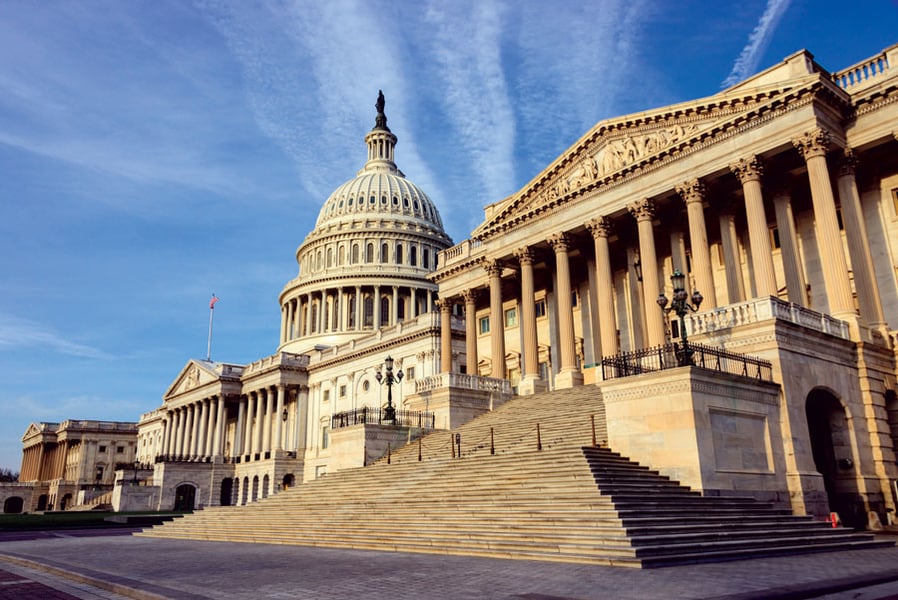

Retirement savings legislation is likely to overcome congressional gridlock next year and advance, a Senate author of one of the bills said Wednesday.
Senate control rests on the outcome of two January runoffs in Georgia, and the Democratic majority in the House has narrowed following the election. But boosting retirement nest eggs is something that draws agreement across the aisle, said Sen. Rob Portman, R-Ohio.
“Regardless of who gets the majority in the Senate come January, this is an area where we have the potential to make some real progress because I think it has been and will be bipartisan,” Portman said at an online hearing of the Senate Finance Subcommittee on Social Security, Pensions and Family Policy. “The idea of being able to save more for your own retirement is just broadly popular.”
The meeting, which Portman chaired, focused on a wide-ranging bill he wrote with Sen. Ben Cardin, D-Md., that is designed to expand workplace savings plans and increase the amount of money people put away for retirement.
It contains many of the same provisions that are included in a bill introduced in October by House Ways and Means Committee Chairman Richard Neal, D-Mass., and the panel’s highest-ranking Republican, Kevin Brady of Texas.
The Portman-Cardin and Neal-Brady bills would build on the SECURE Act, landmark legislation that was approved by Congress in 2019. The Senate measure and the House bill, known as SECURE 2.0, provide momentum in each chamber for more retirement savings legislation.
“It’s a really good starting point,” Portman said. “It gives us a great opportunity to get something done.”
It’s not likely that the Portman-Cardin or Neal-Brady legislation will advance during the lame-duck session of Congress this year given political challenges surrounding government funding and pandemic relief measures. They’ll be on the launch pad for early next year, after each is reintroduced.
“They’re effectively ready,” said a lobbyist working on the issue. “We’re waiting on the legislative vehicle to pull it over the finish line.”
The Portman-Cardin bill would increase the tax credit for small businesses to establish new retirement plans, provide incentives for more generous auto-enrollment plans, boost catch-up contribution limits for people over 60, increase the requirement minimum distribution age for retirement plans to 75 and implement a tax credit for low-income savers, among many other provisions.
“If enacted, the retirement preparedness of the America worker would significantly improve,” Scott Barr, a financial adviser at Edward Jones in Zanesville, Ohio, told lawmakers during the hearing.
He said the start-up tax credit for small employers would increase workplace retirement savings coverage. “In my experience, employer cost is the most significant barrier to the creation of workplace retirement plans,” Barr said.
For individual savers, raising the RMD age is crucial.
“This change would help address the greatest concern I hear most often -- that [clients] will outlive their savings and become a burden,” Barr said.
The Portman-Cardin bill also would allow employers to make a contribution to an employee’s retirement account that matches the employee’s student loan payment.
The student debt and catch-up contribution provisions are important for helping young workers get started on retirement savings and allowing older workers to bolster their accounts, said Eric Stevenson, president of retirement plans at Nationwide.
“Increasing the amount available and promoting catch-up contributions in the way outlined in your bill could play a significant role in closing the gap for savers, especially those nearing retirement,” Stevenson told lawmakers.
Support for auto-enrollment and auto-escalation of contributions to workplace retirement plans came up frequently in the hearing.
“Auto-enrollment is a best practice in helping people save,” said Sen. Sherrod Brown, D-Ohio and ranking member of the Senate Finance subcommittee that met on Wednesday.
Workers are happy to have savings accumulate, Stevenson said.
“Once people get started, they get into the habit,” he said. “When they see that balance grow, they’re glad they [have an account].”

Relationships are key to our business but advisors are often slow to engage in specific activities designed to foster them.

Whichever path you go down, act now while you're still in control.

Pro-bitcoin professionals, however, say the cryptocurrency has ushered in change.

“LPL has evolved significantly over the last decade and still wants to scale up,” says one industry executive.

Survey findings from the Nationwide Retirement Institute offers pearls of planning wisdom from 60- to 65-year-olds, as well as insights into concerns.
Streamline your outreach with Aidentified's AI-driven solutions
This season’s market volatility: Positioning for rate relief, income growth and the AI rebound
